

Guangzhou, May 17, 2025 — The ‘Greater Bay Area Urban-Rural Planning Deans and Department Chairs Forum & Preparatory Meeting for the 2025 China Higher Education Urban-Rural Planning Annual Conference (GBA Session)’ was successfully convened in Guangzhou. Jointly guided by the Urban-Rural Planning Sub-Committee of the National Steering Committee for Higher Education (Ministry of Education) and the Guangdong Provincial Land Spatial Planning Association, the forum was hosted by the College of Architecture and Urban Planning at Guangzhou University.
Heads of urban-rural planning disciplines from higher education institutions across Guangdong, Hong Kong, and Macao gathered to engage in extensive discussions on disciplinary transformation, educational innovation, and regional collaboration. The forum laid out a blueprint for advancing high-quality development in the field.
The opening ceremony featured addresses by: Prof. Yuan Yuan (Sun Yat-sen University), Member of the Urban-Rural Planning Sub-Committee of the National Steering Committee for Higher Education; Prof. Cai Yunnan (Guangdong University of Technology), Vice President of the Guangdong Provincial Land Spatial Planning Association; Prof. Chen Yongtian, Party Secretary of the College of Architecture and Urban Planning at Guangzhou University.
The morning dean’s forum, chaired by Prof. Li Jianjun (Guangzhou University), saw expert representatives from Guangzhou, Shenzhen, Hong Kong, and Macao share cutting-edge insights on disciplinary transformation and innovation. Key presentations included:
Prof. Wang Shifu (South China University of Technology) systematically outlined the evolution of China’s urban-rural planning discipline, noting its established ‘’engineering-dominant, arts-and-science-integrated’ framework. He proposed interdisciplinary restructuring through ‘internal optimization and external integration,’ advocating transitions toward an ‘upgraded version’ (multidisciplinary fusion), a ‘popularized version’ (public education), and a ‘leading version’ (serving national strategies) to meet modernization demands in territorial spatial planning.
A/Prof. Dai Donghui (Harbin Institute of Technology, Shenzhen) shared institutional reforms and suggested establishing an integrated bachelor’s-master’s-doctoral training system. She emphasized enhancing localized teaching (e.g., Nantou Ancient Town community practice) and integrating AI/big data technologies. Reforms like shortening programs from five to four years and modularizing curricula (planning governance, design, and research tracks) were proposed to address industry shifts and diverse talent needs.
Prof. Han Haoying (City University of Macau) called for establishing a comprehensive college integrating ‘science-engineering-social sciences,’ aiming to build four platforms (including a Smart City Lab) within six years to cultivate interdisciplinary talent for modern urban governance.
Prof. Li Weifeng (The University of Hong Kong) focused on sustainable development in high-density cities. Leveraging internationally accredited programs and the ‘Healthy High-Density Cities Lab,’ he highlighted advancing smart-city research to cultivate professionals serving the Asia-Pacific region.
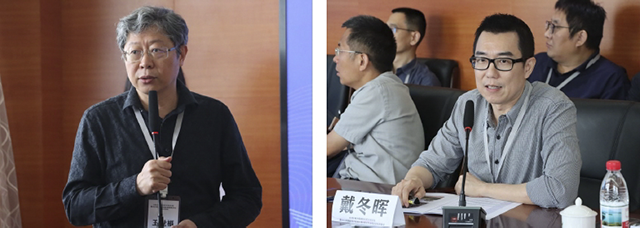
Prof. Wang Shifu;A/Prof. Dai Donghui
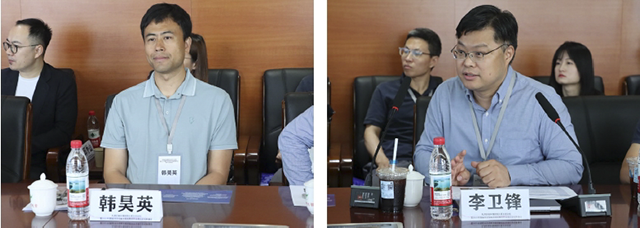
Prof. Han Haoying;Prof. Li Weifeng
The forum culminated in the launch ceremony of the ‘Greater Bay Area Urban-Rural Planning Education Network (GBA-UPEN),’ marking a new phase of collaborative planning education among GBA institutions.
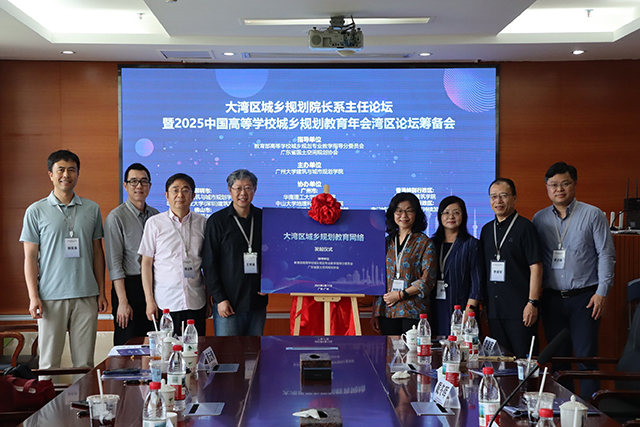
The afternoon session was chaired by Professor Yang Xiaochun from Shenzhen University. Building upon the morning forum, representatives from participating universities discussed the optimization of urban-rural planning education and regional collaboration, while preparing for the 2025 China Higher Education Urban-Rural Planning Annual Conference (GBA Session). Attendees offered suggestions on four topics: the Greater Bay Area Urban-Rural Planning Education Network, optimization measures for urban-rural planning program duration, teaching status and improvement suggestions for core urban-rural planning courses, and bachelor-master talent development articulation.
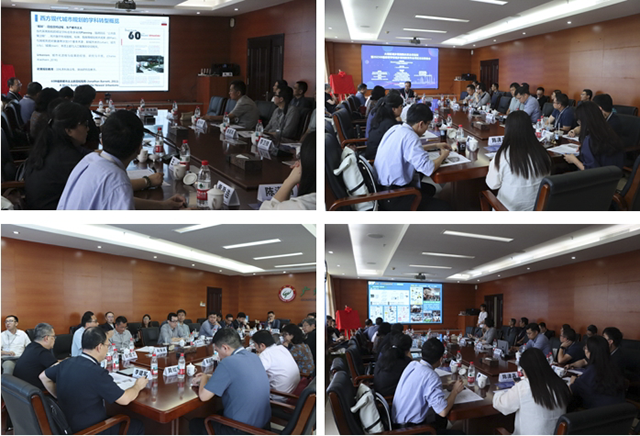
· Professor Zhao Yaolong from South China Normal University called for breaking disciplinary boundaries and deeply integrating geographic information technology to advance scientific urban optimization through planning.
· Professor Cai Yunnan from Guangdong University of Technology emphasized maintaining the discipline’s core essence while enhancing AI and digital teaching content, suggesting coordinated development among GBA universities to strengthen cooperation.
· Professor Yang Xiaochun from Shenzhen University proposed jointly establishing course repositories and collaborative graduation designs to upgrade the discipline toward governance-oriented development.
· Professor Xiao Rongbo from Guangdong University of Finance and Economics stated that urban-rural planning in the new era requires differentiated program development. Undergraduate education should strengthen training in scientific thinking, particularly emphasizing hard-skills development in liberal arts institutions.
· Professor Li Peng from South China Normal University noted that urban-rural planning is a practice-oriented discipline requiring dynamic adaptation to industry demands. He advocated maintaining disciplinary openness externally while embracing differences among institutions with diverse backgrounds (e.g., geography and engineering schools) internally.
· Assistant Professor Wu Cai from The Hong Kong University of Science and Technology (Guangzhou) suggested leveraging interdisciplinary strengths to jointly build technical platforms addressing natural resource management needs.
· Professor Zhou Hongyi from Foshan University proposed establishing a localized case database and implementing joint bachelor-master articulation programs with Hong Kong and Macao universities to enhance regional characteristics.
· Senior Engineer Huang Yinghao from Zhuhai College of Science and Technology highlighted enrollment and employment pressures facing the discipline, recommending strengthened interdisciplinary general education in lower grades and competitiveness enhancement through practical projects (e.g., western Pearl River coast projects) in senior years.
· Associate Professor Lang Wei from Sun Yat-sen University analyzed core contradictions in transitioning from five-year to four-year programs, advocating retaining core spatial design courses while diversifying assessment methods for professional master’s degrees.
· Professor Zhao Miaoxi from South China University of Technology proposed establishing a GBA joint master’s entrance examination mechanism and exploring small-scale, project-based education models to improve student-faculty ratios.
· Professor Wen Chunyang from Guangzhou University emphasized spatial design capability as the core competency, stressing the need to maintain relevance through industry trend alignment and practitioner involvement in teaching.
Consensus and Outcomes: The meeting reached consensus: GBA universities must actively address disciplinary transformation challenges by sharing teaching resources, co-developing faculty capacity, and jointly building disciplinary systems to advance urban-rural planning education innovation and regional collaborative development.
After the meeting, participating experts visited the laboratories of Guangzhou University’s School of Architecture and Urban Planning, laying a practical foundation for future cooperation. This session clarified preparatory directions for the 2025 China Higher Education Urban-Rural Planning Annual Conference (GBA Session), marking a new phase of collaborative urban-rural planning education among Guangdong, Hong Kong, and Macao.
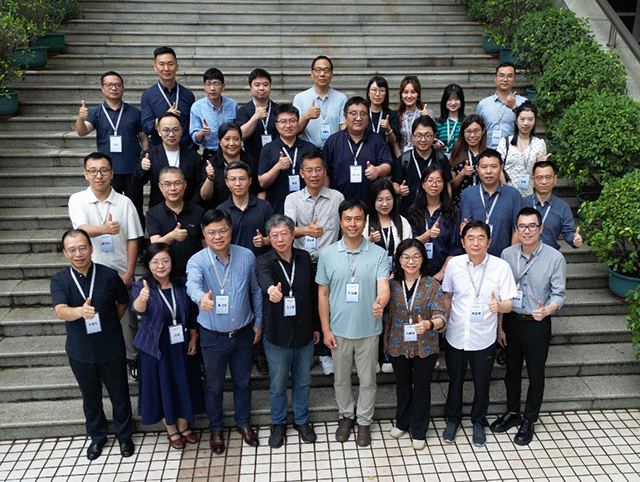
The original report is accessed at https://arch.gzhu.edu.cn/info/1046/10465.htm in Chinese. All figures in this report are token by authors.
Edited by Haochen Shi with reference to https://arch.gzhu.edu.cn/info/1046/10465.htm